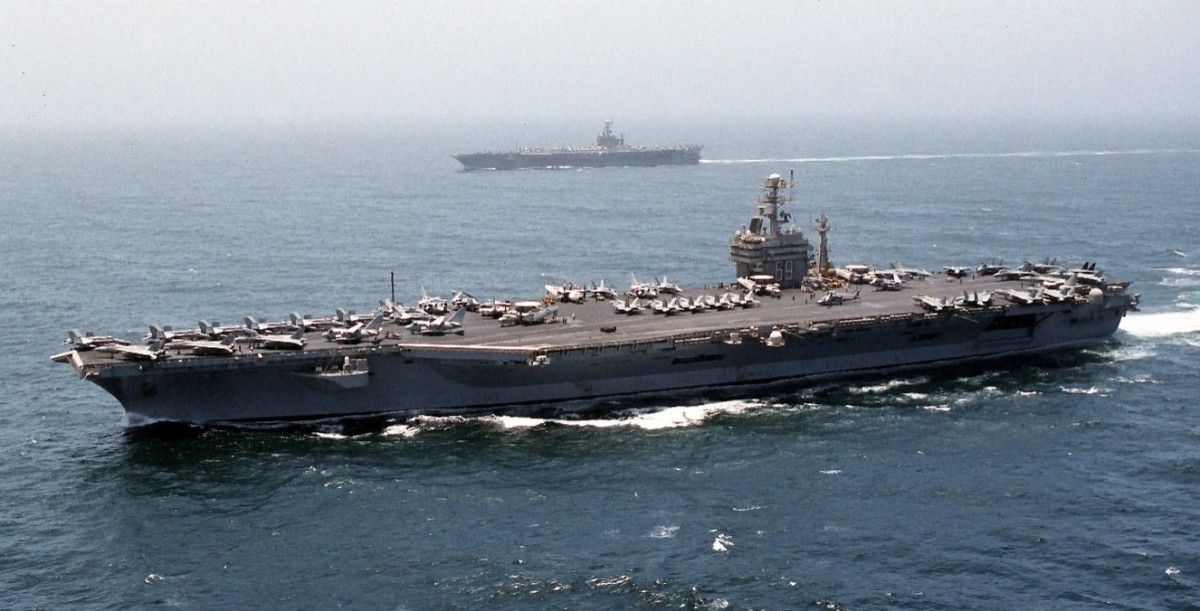
The Yaroslav Mudryy, a Project 1154 Neustrashimy-class frigate wearing pennant number 777 was, according to a U.S. Navy report, conducting shadowing operations of the aircraft carrier Dwight D. Eisenhower carrier strike group as the flattop was flying combat operations against ISIS targets in Syria and Iraq, Defense News reports.
The Russian frigate closed on the cruiser San Jacinto, operating as the carrier's air defense commander, in an action a Navy message characterized as "abnormal, [un]safe and unprofessional."
A copy of the message was obtained by Defense News.
The message details how the Yaroslav Mudryy was observed by the San Jacinto to be approaching "with ten personnel topside and weapons uncovered but unmanned." The message did not specify what particular weapons were uncovered as the frigate closed to within 150 yards of the San Jacinto.
It is also not clear how close to the carrier the incidents took place, although it does indicate the Russians were "within line of sight" of the strike group.
A message from the San Jacinto noted "the behavior of FF-777 [the Yaroslav Mudryy] was expected and pre-briefed based on interactions with USS Gravely earlier in the month," referring to the June 17 incident when the destroyer Gravely interceded between the carrier Harry S. Truman and the Mudryy.
"The actions of FF-777 were abnormal as they displayed maneuvers rarely seen by professional mariners at sea combined with an aggressive approach of [the San Jacinto]," the message continued.
Read alsoRussian sub intercepted by British Navy warshipWhile the cruiser was "never threatened by the erratic maneuvers of FF-777," the message noted coming to within 150 yards before turning away "is a high-risk maneuver, highly unprofessional and contrary" to international regulations for preventing collisions at sea.
The Yaroslav Mudryy, after the close approach, took station in the San Jacinto's wake about 3,000 yards astern of the cruiser and, according to the message, began broadcasting "do not cross my bow," an action the U.S. characterized as "inconsistent with the spirit of the [Incidents at Sea] agreement," a longstanding agreement between the U.S. and Russia to deal with such situations.
After following in the cruiser's wake, the Yaroslav Mudryy, according to the message, returned to "routine, safe and professional" operations.

